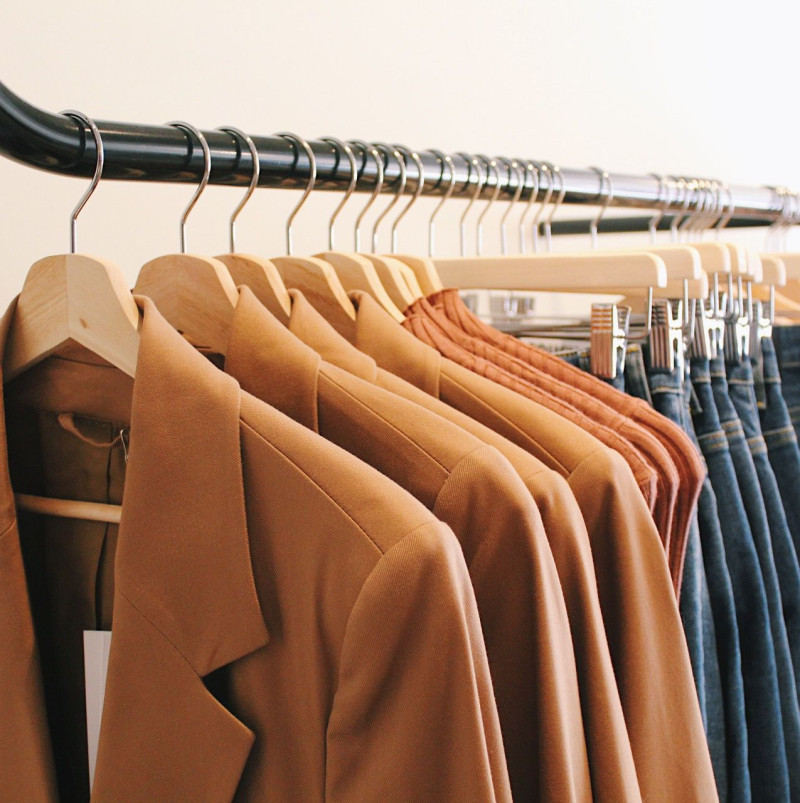
By Sarah Hitchcock
It goes without saying that the fashion industry has a huge role to play in the fight against climate change. However, delving into the stark warnings from intergovernmental panels and dire statistics predicting immense damage can be both depressing and at times, disengaging. Hence, it is important to highlight all the progressive and inspiring actions being taken by the fashion industry to address the issue of climate change. Sustainability measures are being taken in fashion all over the world from extremely innovative measures such as Stella McCartney's new range of (extremely expensive) mycelium-based handbags, to slightly less inspiring actions such as Pretty Little Things' new sustainable (greenwashing and ambitiously deflective of business-as-usual practices) clothing range. However, we need look no further than our very own Emerald Isle to see how the fashion industry has the capability to act as a force of good in the battle against the climate crisis.
Like many other countries, Ireland has evolved to have a fashion culture that is ubiquitous with second-hand, vintage, and repurposed clothes. Before these trends emerged, thrift shops were highly stigmatised as they were viewed as dirty and deemed suitable only for hippies or people who couldn't afford new clothes. Arguably, it is now deemed uncool to not shop in vintage stores or wear your mom's hand me down denim jacket from the 80s. This cultural shift has made way for new fashion creatives to engage in sustainable and eco-conscious work in Ireland.
The IPCC has warned that to limit the damage caused by climate change, net greenhouse gas emissions must be reduced to zero by 2050. To reach this goal, drastic changes need to be implemented in terms of how we produce clothing. A 2020 report by McKinsey & Company in collaboration with the Global Fashion Agenda (GFA) estimates that 38% of annual GHG emissions are generated by textile production. The textiles in question are predominantly polyester and cotton. Polyester is made from oil and is extremely energy-intensive. Cotton, on the other hand, is less energy intensive as it is an agricultural crop. However, the use of pesticides and fertilisers in cotton farming is extremely detrimental to the environment.
An Irish designer challenging the widespread use of unsustainable textiles is Aoife McNamara of Aoife_Ireland. Aoife is the creative force behind the luxury sustainable fashion brand that creates beautiful and unique pieces inspired by the natural world. Aoife Ireland clothing is made from organic cotton and other ethically sourced materials such as seacell. Seacell is derived from North Atlantic seaweed and is combined with organic cotton in Aoife’s creations to produce a beautiful combination of nature, creativity, and eco-consciousness in the form of a piece of clothing. Aoife’s creativity is equal parts inspiring and absolutely necessary in the face of a crisis that requires the implementation of global innovative solutions across multiple industries.
Another Irish creative who recognises the urgent need for sustainability in the fashion industry is the ever-elusive Emz (Emma) of Wild Éire. Wild Éire’s core values are centred around making ethically sourced, inclusive, and sustainable streetwear. More importantly, Wild Eire is not only committed to sustainability but also de-stigmatising and normalising discussion around mental health. Beyond the raw materials stage, the energy used in transporting a garment from A to B has a huge impact on its carbon footprint. Emz ensures that all orders coming from Wild Éire are carbon neutral as shipping emissions are offset through a scheme of planting trees. Notably, the McKinsey and GFA 2020 report recommends that industry participants encourage sustainable consumer behaviour. In line with this recommendation, Emz enables consumers to make environmentally conscious shopping choices by ensuring that Wild Éire has the lowest possible impact on the planet. Wild Éire is an inspiration to other small Irish businesses looking to engage in meaningful and planet-centric work.
With sustainable fashion brands becoming increasingly popular, it is hard to know how to navigate the sustainable fashion market. S.l.o.w.s.t.r.e.e.t is an Irish business that has made shopping sustainably that bit easier. The founder, Evelyn, believes people should have more options in clothing that is both sustainable and fashionable. Essentially, s.l.o.w.s.t.r.e.e.t stocks sustainable fashion brands with environmental and social values at the core of their work. S.l.o.w.s.t.r.e.e.t does all the hard work by researching brands' labour practices, production process, waste and energy management, and fabric usage. In doing so, it is easier for consumers to make environmentally-conscious shopping decisions. Within the fashion industry, a lack of transparency concerning environmental impacts makes it harder for consumers to decipher which brands align with their own shopping values. Furthermore, a 2020 survey carried out by Fashion Revolution found that 78% of consumers wanted brands to share more detailed information about the environmental impacts of their products. Evidently, it is difficult to investigate the level of transparency held by various brands when making shopping decisions. Hence, s.l.o.w.s.t.r.e.e.t has given consumers access to ethical brands and increased consumers' ease of shopping by going above and beyond to research the business and production practices of fashion brands up and down their supply chain.
There are so many more issues within the complex and multifaceted world of fashion that go far beyond the scope of this article. However, with increased pressure on industries to adapt to climate change, it is important to shine a light on the sustainable designers and businesses that are innovatively tackling the climate crisis one ethical decision at a time.